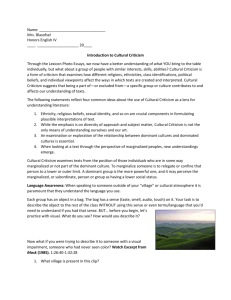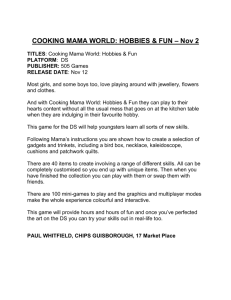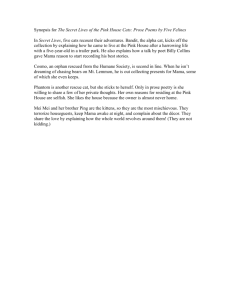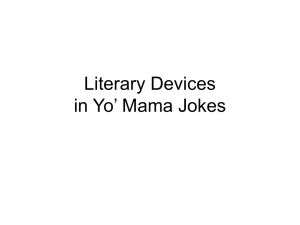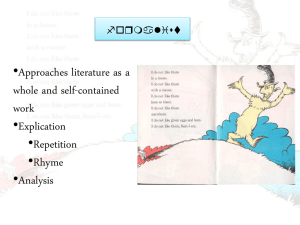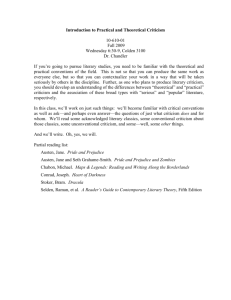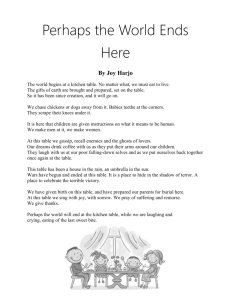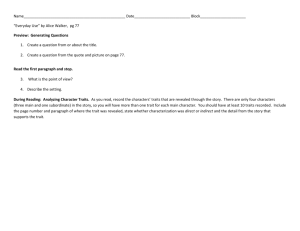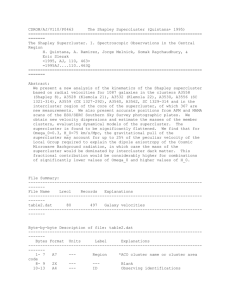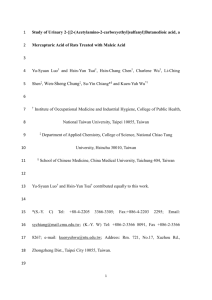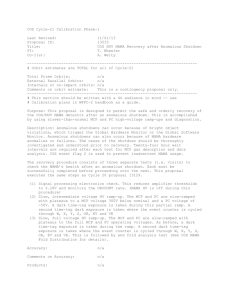Speaking w/ Hands Worksheet
advertisement
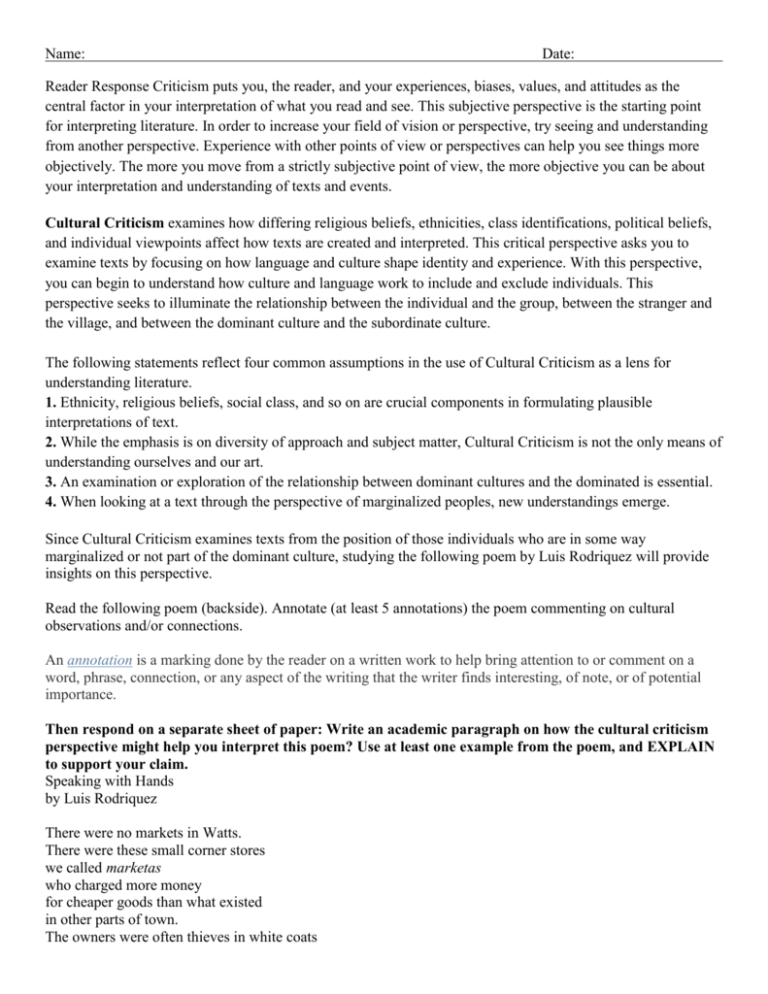
Name: Date: Reader Response Criticism puts you, the reader, and your experiences, biases, values, and attitudes as the central factor in your interpretation of what you read and see. This subjective perspective is the starting point for interpreting literature. In order to increase your field of vision or perspective, try seeing and understanding from another perspective. Experience with other points of view or perspectives can help you see things more objectively. The more you move from a strictly subjective point of view, the more objective you can be about your interpretation and understanding of texts and events. Cultural Criticism examines how differing religious beliefs, ethnicities, class identifications, political beliefs, and individual viewpoints affect how texts are created and interpreted. This critical perspective asks you to examine texts by focusing on how language and culture shape identity and experience. With this perspective, you can begin to understand how culture and language work to include and exclude individuals. This perspective seeks to illuminate the relationship between the individual and the group, between the stranger and the village, and between the dominant culture and the subordinate culture. The following statements reflect four common assumptions in the use of Cultural Criticism as a lens for understanding literature. 1. Ethnicity, religious beliefs, social class, and so on are crucial components in formulating plausible interpretations of text. 2. While the emphasis is on diversity of approach and subject matter, Cultural Criticism is not the only means of understanding ourselves and our art. 3. An examination or exploration of the relationship between dominant cultures and the dominated is essential. 4. When looking at a text through the perspective of marginalized peoples, new understandings emerge. Since Cultural Criticism examines texts from the position of those individuals who are in some way marginalized or not part of the dominant culture, studying the following poem by Luis Rodriquez will provide insights on this perspective. Read the following poem (backside). Annotate (at least 5 annotations) the poem commenting on cultural observations and/or connections. An annotation is a marking done by the reader on a written work to help bring attention to or comment on a word, phrase, connection, or any aspect of the writing that the writer finds interesting, of note, or of potential importance. Then respond on a separate sheet of paper: Write an academic paragraph on how the cultural criticism perspective might help you interpret this poem? Use at least one example from the poem, and EXPLAIN to support your claim. Speaking with Hands by Luis Rodriquez There were no markets in Watts. There were these small corner stores we called marketas who charged more money for cheaper goods than what existed in other parts of town. The owners were often thieves in white coats who talked to you like animals, who knew you had no options; who knew Watts was the preferred landfill of the city. One time, Mama started an argument at the cash register. In her broken English, speaking with her hands, she had us children stand around her as she fought with the grocer on prices & quality & dignity. Mama became a woman swept by a sobering madness; she must have been what Moses saw in the burning bush, a pillar of fire consuming the still air that reeked of overripe fruit and bad meat from the frozen food section. She refused to leave until the owner called the police. The police came and argued too, but Mama wouldn’t stop. They pulled her into the parking lot, called her crazy… and then Mama showed them crazy! They didn’t know what to do but let her go, and Mama took us children back toward home, tired of being tired. Following are sample questions to consider if you need help with writing questions to explore the text through the lens of Cultural Criticism Literal What is the name of the neighborhood in which the narrator’s family lives? What is the allusion to Moses and “the burning bush”? Interpretive Why did Mama make her children stand around as she argued with the store owner? Why does the author compare Mama’s “madness” or craziness to “the burning bush” from the Bible? Universal Why is going crazy an expression of “tired of being tired”? Does speaking broken English marginalize people?
